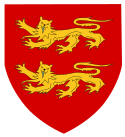 |
|---|
|
A referendum on the composition of the Chief Pleas was held in Sark between 16 August and 6 September 2006, [1] following an informal referendum in February. [2] Voters were given the choice of having all 28 seats elected, or to have 12 seats for Deputies, eight for tenants and eight elected by everyone. [1]
Background
On 8 March 2006 the Chief Pleas voted to reduce the number of seats from 52 to 28. [3] The proposed system at the time was for 14 seats to be reserved for landowners and 14 elected by the general population. [3] However, in April the Seigneur Michael Beaumont warned the Pleas that this may not be approved by the Privy Council. [4] In July three options were put forward; electing all 28 members by universal suffrage; having 16 members elected by the general public and 16 elected by tenants, and having 16 tenants and 16 general members all elected by universal suffrage. [5] A meeting held on 6 July was unable to make a decision due to disagreements on whether to hold a consultative referendum. [5] However, the referendum was agreed to on 9 August. [6]
The Pleas determined that voter turnout must be at least 60% and that a winning option must receive 54.5% of the vote. [1]
Results
Which of the following options for the composition of the Cheaf Pleas would you prefer:
[A] 28 Open Seats
[B] 12 Seats for Deputies, 8 Seats for Tenants, 8 Open Seats
| Choice | Votes | % |
|---|---|---|
| Option A | 234 | 55.98 |
| Option B | 184 | 44.02 |
| Invalid/blank votes | 1 | – |
| Total | 419 | 100 |
| Registered voters/turnout | 468 | 89.52 |
| Source: Direct Democracy | ||
References
- ^ a b c Sark (Channel Islands), 6 September 2006: Composition of Parliament Direct Democracy (in German)
- ^ Sark (Channel Islands), 23 February 2006: Composition of Parliament Direct Democracy (in German)
- ^ a b Island cuts back feudal influence BBC News, 8 March 2006
- ^ Setback over Sark's constitution BBC News, 20 April 2006
- ^ a b Meeting fails to pick reform plan BBC News, 6 July 2006
- ^ Islanders to have say on reforms BBC News, 10 August 2006
 |
|---|
|
A referendum on the composition of the Chief Pleas was held in Sark between 16 August and 6 September 2006, [1] following an informal referendum in February. [2] Voters were given the choice of having all 28 seats elected, or to have 12 seats for Deputies, eight for tenants and eight elected by everyone. [1]
Background
On 8 March 2006 the Chief Pleas voted to reduce the number of seats from 52 to 28. [3] The proposed system at the time was for 14 seats to be reserved for landowners and 14 elected by the general population. [3] However, in April the Seigneur Michael Beaumont warned the Pleas that this may not be approved by the Privy Council. [4] In July three options were put forward; electing all 28 members by universal suffrage; having 16 members elected by the general public and 16 elected by tenants, and having 16 tenants and 16 general members all elected by universal suffrage. [5] A meeting held on 6 July was unable to make a decision due to disagreements on whether to hold a consultative referendum. [5] However, the referendum was agreed to on 9 August. [6]
The Pleas determined that voter turnout must be at least 60% and that a winning option must receive 54.5% of the vote. [1]
Results
Which of the following options for the composition of the Cheaf Pleas would you prefer:
[A] 28 Open Seats
[B] 12 Seats for Deputies, 8 Seats for Tenants, 8 Open Seats
| Choice | Votes | % |
|---|---|---|
| Option A | 234 | 55.98 |
| Option B | 184 | 44.02 |
| Invalid/blank votes | 1 | – |
| Total | 419 | 100 |
| Registered voters/turnout | 468 | 89.52 |
| Source: Direct Democracy | ||
References
- ^ a b c Sark (Channel Islands), 6 September 2006: Composition of Parliament Direct Democracy (in German)
- ^ Sark (Channel Islands), 23 February 2006: Composition of Parliament Direct Democracy (in German)
- ^ a b Island cuts back feudal influence BBC News, 8 March 2006
- ^ Setback over Sark's constitution BBC News, 20 April 2006
- ^ a b Meeting fails to pick reform plan BBC News, 6 July 2006
- ^ Islanders to have say on reforms BBC News, 10 August 2006